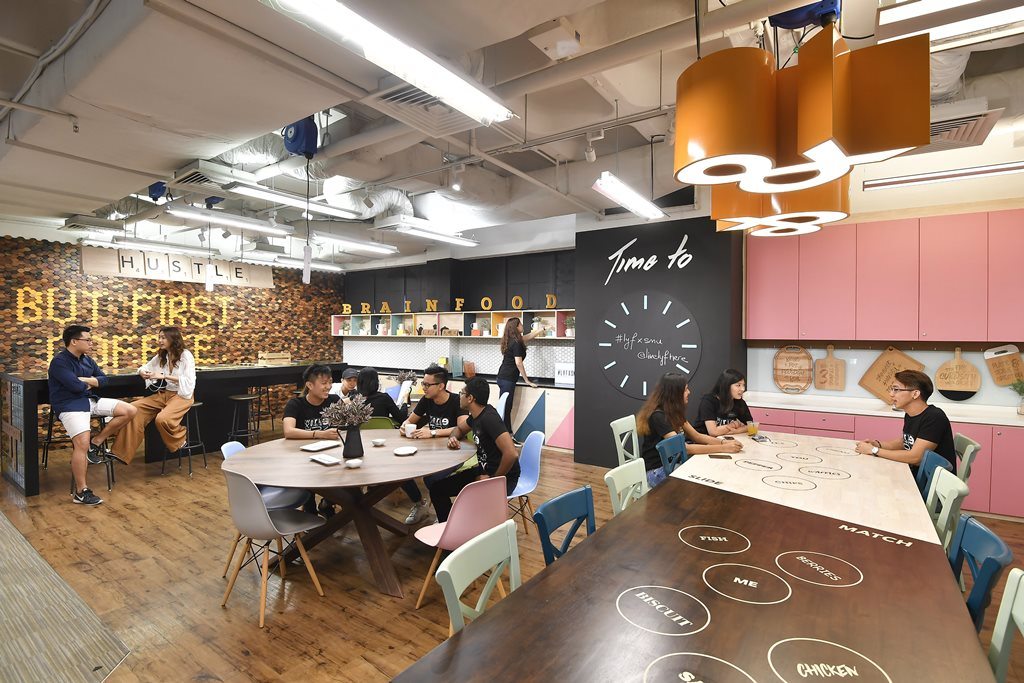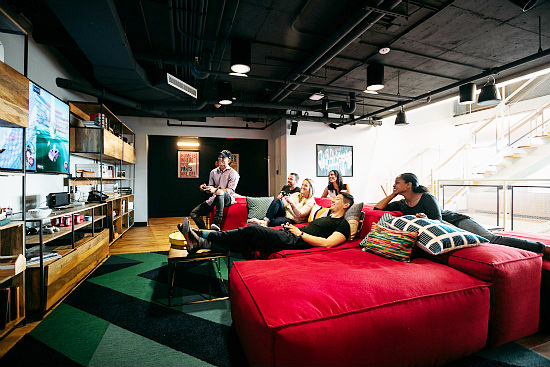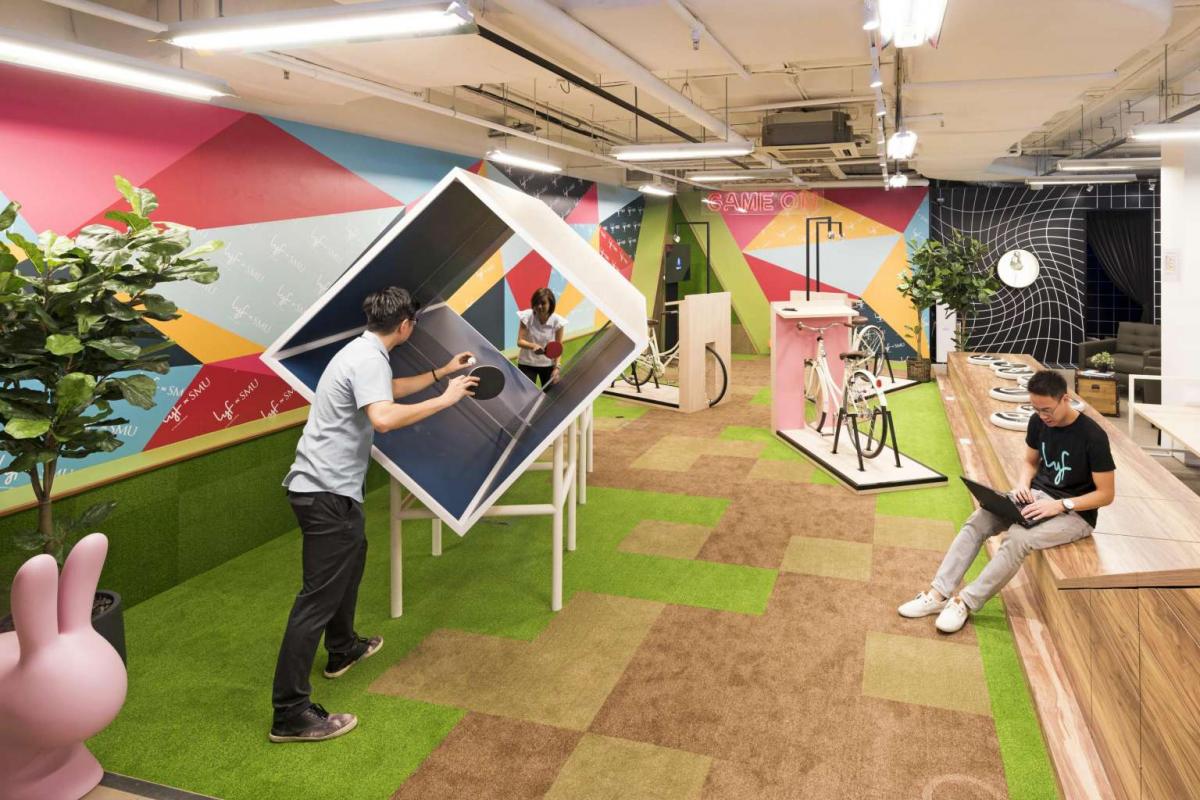
Millennials inhabit spaces differently to their parents and grandparents.
This is a generation that grew up with technology, social media, and the sharing economy. They are highly adaptable and much more willing to share facilities. For one, a pantry is a working area and a networking spot, while a lobby can double up as a yoga space. They are not fond of cookie-cutter, one-size-fits-all approaches.
Having their own apartment is not just about retiring to their personal space; instead, it’s a social activity where they can hang out with like-minded friends.

apartment. Photo courtesy of WeLive Crystal City.
And so it’s no surprise that co-living, defined as a modern, urban type of accommodation with shared living spaces, is beginning to gain traction. In fact, co-working specialist WeWork launched its co-living apartments WeLive in New York City last year.
The demand for co-living is similar to the reasons behind the popularity of co-working—a mobile generation of young people who demand flexibility, openness, and collaboration. Millennials, defined as those born between 1980 and 2000, no longer draw distinctions between business and pleasure, work and play. They have no qualms about being digital nomads, travelling frequently or relocating for work. More than anything else, they seek out experiences and value being part of a community.
More than serviced apartments
Major hospitality players are taking note of this new and growing market segment. Late last year, the Ascott group, which made its name in the serviced apartment business, created a new co-living brand called lyf that is designed for and managed by Millennials.
It has also partnered the Singapore Management University (SMU) to set up the serviced residence industry’s first-of-its-kind living lab in the city state. This will field test various co-living concepts and community building activities, and build a data reservoir of user preferences and space-usage patterns as the influence of Millennials becomes ever more widespread.

students can test out various co-living concepts, making them the first "customers" to experience
and shape upcoming lyf properties. Photo courtesy of The Ascott.
Indeed, Millennials already form a quarter of Ascott’s customers; that number is expected to grow as more of them start work. By 2020, they will make up 50 percent of the global workforce according to research from PwC. Human resource policies are also changing—gone are the days of expat packages; those who relocated for work are getting younger, too.
And as long as there are vibrant gateway cities like Shanghai, Tokyo, London, and Paris attracting young workers, there will be a need for spaces that help them settle in quickly and get plugged into the local community easily. The demand for co-living is growing from the corporate side, as well. Multinational corporations and start-ups alike want collaborative living spaces with high-quality facilities and office-standard technology for their project teams and interns wherever they are in the world.
Tackling urban life
As our cities become denser and more expensive, co-living addresses some of the issues around urban living. Apartments are getting smaller and rents higher, which make it harder for younger workers to rent their own place. Moreover, it does not always make sense to take on a 12-month or 24-month lease on an apartment when you could be moving again.
At the same time, people are becoming busier, more likely to travel, and have less time to know one another. The over-reliance on technology and social media exacerbates the trend of loneliness and isolation among Millennials.
Such factors are driving the growth of co-living. It is a relatively inexpensive way for Millennials to jump right in and have their own housing, utilities, furniture, and an access to a community taken care of.
While there will always be a demand for condominium apartments or traditional serviced apartments, especially for those with families, there is no denying that the millennial workforce crave their own kind of space defined by their needs and the cities they choose to live in.
Co-living is bringing these real demographic shifts together. It’s creating a fresh mode of accommodation for this brave new world. 
This article was reprinted in its entirety from Real Views, a news site from JLL that features stories exploring the world of real estate and its impact on the wider business world. Read the original article here. Topmost image courtesy of lyf.

